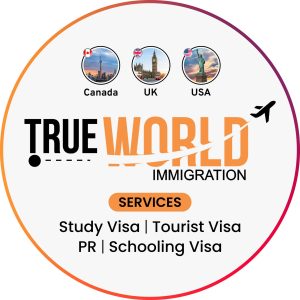Major Schengen Visa Policy Changes Announced for 2025!
Major Schengen Visa Policy Changes Announced for 2025!
- Romania and Bulgaria to join Schengen Member States from January 1, 2025.
- A new entry/exit system (EES) and European travel information authorization system (ETIAS) will be introduced.
- The Greece Golden Visa Program will expand with new investment pathways.
- Changes in France’s multi-year residence permit requirements.
- EU citizens will face increased authorization fees for UK travel from April 2025.
Schengen Visa Policy Changes:
Key Changes to Schengen Visa Policies in 2025

The European Union has announced multiple updates to its travel and visa systems, set to roll out in 2025. These changes aim to enhance security, improve processes, and encourage smoother movement across the Schengen Area.
1. Introduction of the Entry and Exit System (EES)
The EU will launch a digitized Entry/Exit System (EES) to replace manual passport stamping. This system will simplify travel for foreign visitors by allowing them to register electronically at external EU borders, ensuring faster and more secure entry procedures.
2. European Travel Information and Authorization System (ETIAS)
The ETIAS will apply to visa-exempt travellers from 60+ countries, impacting around 1.4 billion visitors. Visitors must apply for travel authorization before their trip to the EU. This system enhances security while making travel more organized and efficient.
3. Romania and Bulgaria to Join the Schengen Area
Starting January 1, 2025, Romania and Bulgaria will officially become Schengen Member States by air and sea. Travellers will enjoy easier movement without internal border controls in these countries, making travel across the Schengen region even more seamless.
4. Greece Golden Visa Program to Expand
Greece will introduce a new investment pathway under its Golden Visa Program, focusing on start-ups. Eligibility for the pathway includes:
- Greece's National Register of Start-ups lists a minimum investment of €250,000 in start-ups.
- A 33% equity participation in the company’s voting rights or capital.
- The creation of at least two jobs in the first year of investment.
- A commitment to maintaining the workforce for five years.
This initiative aims to boost innovation and economic growth by attracting global investors.
5. Changes in UK Authorization Fees for EU Citizens
From April 2025, EU citizens travelling to the UK must pay an €11 authorization fee for the UK’s Electronic Travel Authorization (ETA). The ETA will be processed within three days of applying, simplifying UK entry procedures.
6. Updates to France’s Multi-Year Residence Permits
 France will introduce new language proficiency requirements for residence permits:
France will introduce new language proficiency requirements for residence permits:- A2-level proficiency in French for multi-year residence permits.
- B1 level proficiency for those applying for a 10-year residence permit.
These changes emphasize the importance of language integration for long-term residents in France.
FAQ
- What is a Schengen Visa?
A Schengen Visa is a short-stay visa that allows a person to travel to any of the 27 countries in the Schengen Area for up to 90 days within 180 days. - Which countries are part of the Schengen Area?
The Schengen Area includes 27 European countries, such as Germany, France, Spain, Italy, and the Netherlands, that have abolished border controls between them. - Who needs a Schengen Visa?
Citizens of countries that do not have a visa-free agreement with the Schengen Area need a Schengen Visa to enter. - How long is a Schengen Visa valid?
A Schengen Visa is valid for up to 90 days within 180 days, depending on the type of visa issued. - Can I use a Schengen Visa to enter multiple countries?
Yes, a Schengen Visa allows travel to all countries within the Schengen Area, but you must apply at the consulate of the main destination or the country of first entry. - What are the types of Schengen Visas?
Schengen Visas include tourist visas, business visas, transit visas, study visas, and family visit visas, among others. - What documents are required to apply for a Schengen Visa?
Commonly required documents include a valid passport, visa application form, travel itinerary, proof of financial means, travel insurance, and proof of accommodation. - How much does a Schengen Visa cost?
The standard application fee for a Schengen Visa is €80 for adults and €40 for children aged 6 to 12. Children under 6 are exempt from the fee. - How long does it take to process a Schengen Visa application?
Processing times vary but usually take 15 calendar days. In some cases, it can take up to 45 days. - Can I extend my Schengen Visa?
Extensions are rare and granted only under exceptional circumstances, such as medical emergencies or unforeseen events. - Do I need travel insurance for a Schengen Visa?
Yes, travel insurance is mandatory. It must cover at least €30,000 for medical emergencies and repatriation across the entire Schengen Area. - What is the 90/180-day rule?
This rule means you can stay in the Schengen Area for up to 90 days within any 180-day period. Exceeding this limit can result in fines or bans. - Can I work on a Schengen Visa?
A standard Schengen Visa does not permit work. If you plan to work, you need to apply for a work visa specific to the country. - What happens if my Schengen Visa application is denied?
If your application is denied, you will receive a reason for the denial. You can either address the issues and reapply or appeal the decision. - Can I travel to non-Schengen countries with a Schengen Visa?
No, a Schengen Visa only allows travel within the Schengen Area. For non-Schengen countries, separate visas may be required.




Comments
Post a Comment